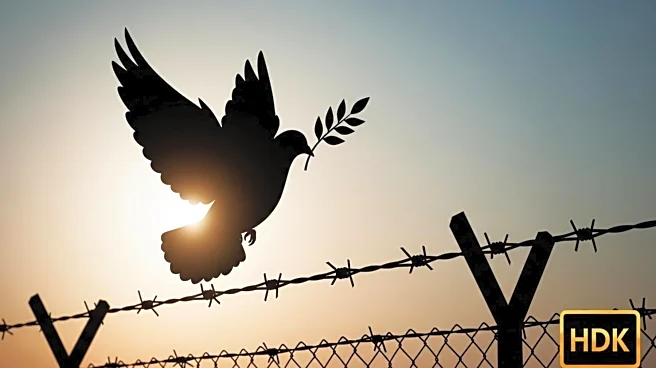What's Happening?
Hamas has announced its agreement to release all Israeli hostages held in Gaza, including the bodies of those who have died. This development comes as President Trump has called on Israel to cease bombing Gaza to facilitate the swift release of the hostages. In his statement, President Trump expressed optimism about Hamas's readiness for a lasting peace and mentioned ongoing discussions to finalize the details. The statement from Hamas, however, left several questions unanswered, particularly regarding the conditions for the exchange and the group's future role in Gaza's governance. Hamas indicated a willingness to hand over Gaza's administration to a Palestinian body of independent technocrats, but it remains unclear if they have agreed to the White House's demand to be excluded from political power in Gaza.
Why It's Important?
The agreement by Hamas to release hostages marks a significant development in the ongoing conflict between Israel and Gaza. This move could potentially ease tensions and open pathways for further negotiations. The involvement of President Trump highlights the U.S.'s role in mediating Middle Eastern conflicts, which could have implications for U.S. foreign policy and its relationships with both Israel and Palestinian authorities. The situation also raises questions about the future governance of Gaza and the potential for a shift in power dynamics if Hamas relinquishes control. The outcome of these negotiations could impact regional stability and influence international diplomatic efforts in the Middle East.
What's Next?
The next steps involve indirect talks between Hamas and Israel to discuss the conditions for the hostages' release. The international community will be closely monitoring these discussions, as they could set a precedent for future negotiations in the region. The U.S. is likely to continue its diplomatic efforts to ensure a peaceful resolution, while Israel's response to Hamas's proposal remains to be seen. The potential for Hamas to give up its weapons if the occupation ends could also be a critical point in the negotiations, influencing the broader peace process.









